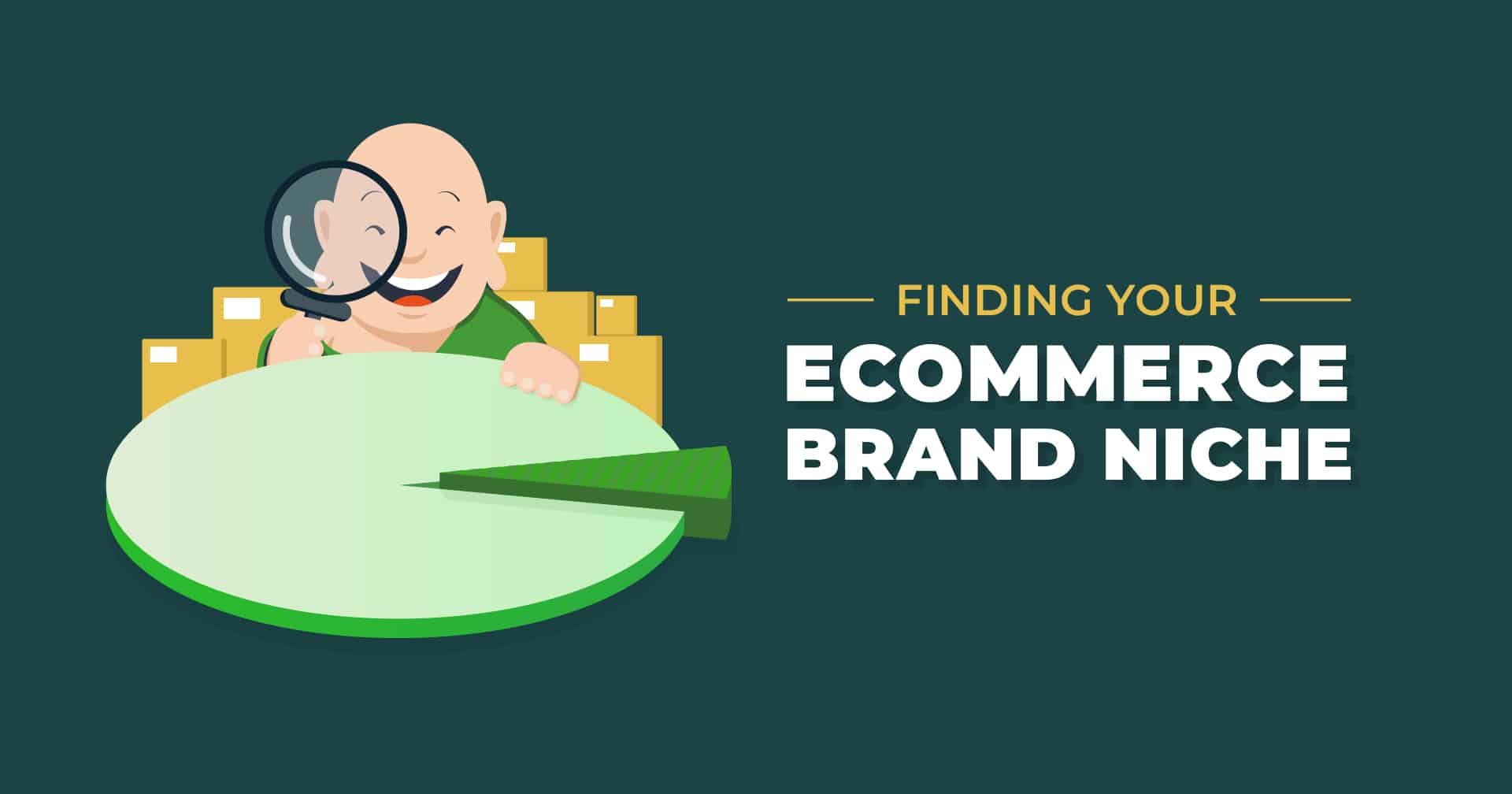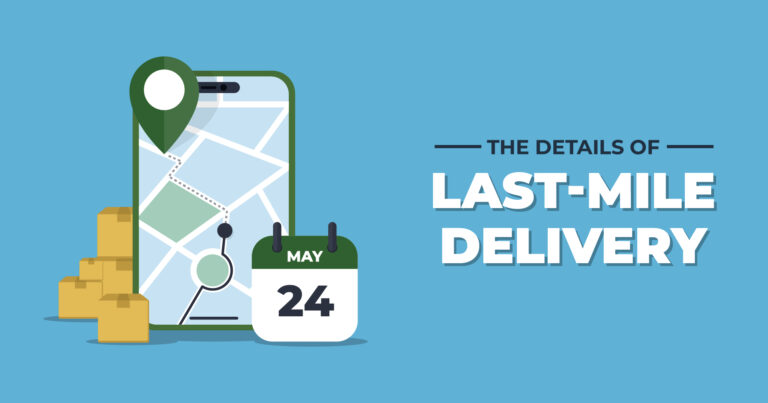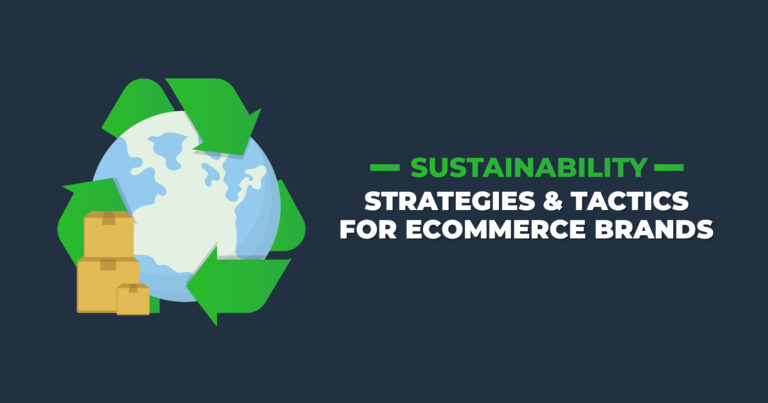Finding Your Ecommerce Brand Niche
Let’s assume you’re an entrepreneur with a great idea. You decide to launch an ecommerce store to sell this idea because it’s the greatest idea ever and can’t possibly fail. You know this because you have a gut feeling about these things.
You may be right (in fact, we’re betting on it!) but your investors are probably going to need a little more information to go on. Part of the process is doing your homework and identifying your ecommerce niche. What is an ecommerce niche? That’s what you’re about to find out.
What is an Ecommerce Niche?
The word niche stems from the Latin word nīdus, for “nest.” Nicher, in French means “to make a nest.” In architecture, a niche is a small recession specially built for a statue or decorative object. So that’s why, in business terms, a niche is a specific place where your product or business belongs — it’s your nest, so to speak.
How do you find your niche? Start with your elevator pitch. If you have 10 seconds to tell someone about your business or product, what do you say? A niche might be product specific, like socks, where you’ll find brands like Smartwool and Bombas; or it might have a broader focus like brand-name cosmetics, where you’ll find ecommerce retailers (e-tailers) like Sephora and Dermstore. In the best-case scenario, your product is so unique that you have that niche all to yourself, but this is rare and usually doesn’t last long. In most cases there are several competitors within the niche, all connected by a common theme.
What is Not a Niche?
A niche is not a niche if there are thousands of other products, brands, or retailers in it with you. A product category like apparel, for example, has too many subcategories to be considered a niche. What kind of apparel? Jeans? Loungewear? Suits? Men’s or women’s? Even socks can be further subdivided into athletic socks, wool socks, dress socks, statement socks, etc. A niche has well-defined parameters and targets a distinct demographic. The more specific and targeted you can get, the better.
Why Your Brand Needs a Niche
There are over three million unique third-party sellers on Amazon in North America, and six million worldwide. How do you compete? Finding your niche is a good start. Whether you’re an e-tailer that sells a variety of brands, or a startup brand trying to make a name for itself, your niche will help you figure out how to present yourself to the world (and what parts of the world you can safely ignore).
If you’re a brand startup, what makes your product special? What type of person is going to love it? Finding your niche gives you a better idea of where to spend your marketing dollars, and the messaging, look, and tone that your advertising and brand identity should convey. Getting it right may take a little trial and error, but when you put the right product in front of the right consumer at the right time, you’ll increase the likelihood of a sale. If you don’t have anything unique to talk about, then perhaps you should reconsider your product strategy.
If you’re an e-tailer, ask yourself what is so different about your selection that a consumer will want to buy their favorite brands from you? Department stores survived for a long time by being one-stop-shops, but now we have marketplaces like Amazon, Ebay, and Etsy. If you try to sell everything to everybody, you’ll be competing with Amazon. You’re much better off focusing on one type of product or one type of customer, and concentrating all your marketing efforts in that niche.
Selling on Amazon may or may not be part of that strategy, but be sure you understand the differences between Fulfillment by Amazon (FBA), Fulfilled by Merchant (FBM), and Seller Fulfilled Prime (SFP) before committing to any of them.
How to Find Your Ecommerce Brand Niche
There are two ways to find a brand niche: jump on an existing bandwagon (preferably before it gets moving too fast), or create your own. If you’re already knee deep in design iterations and fulfillment provider RFPs, we hope you’ve already gone through this exercise. If you’re still in the thinking stage, ask yourself these three questions while you still have time to pivot.
#1. What Problem is your Product or Brand Solving?
It’s been our experience that businesses started by people trying to solve a problem are the best kinds of business. We should know. ShipMonk was founded by Jan Bednar, a young entrepreneur who couldn’t find a solution that worked, so he built his own. If you’re the only one in your product category who is solving a specific problem, then you already have your niche. Problem solved. Also, being first is a huge plus.
#2. Who Else is in the Space?
Oh, so, you’re not the first person to come up with the idea? We can’t all be first. But before you jump onto the bandwagon, you’ll want to conduct a very thorough niche market study. Among lots of other things, it should include:
Competitors:
- Who are the leaders in this niche?
- How does their product and brand messaging differ from yours?
- Where are they advertising?
- Who are they targeting?
- How can you set yourself apart?
Market Size:
- What are the current annual sales and forecasted sales in this niche?
- Is there room for growth?
Historical Trends:
- Is this niche growing, holding steady, or heading downhill?
Demographic
- What types of people are interested in your niche?
- How likely are they to switch brands?
- Which groups represent the best opportunity?
Popular Keywords:
- What are your niche’s popular keywords? These often indicate rising trends and problems you can solve.
Profitability:
- What will it cost to manufacture your products?
- What will your profit margin be?
Limitations:
- Are there any limitations within your niche?
- Do your products require special handling?
- Do they contain materials that are regulated or restricted?
Once you’ve done your research, you may find that your niche isn’t the slam dunk you were expecting. There’s still hope. If you get even more specific with your parameters, you may find an unconquered corner of the digital market you can call your own. For example, if your product isn’t all that unique but your mission to save the world is, then maybe adding a cause marketing program, switching to sustainable, eco-friendly packaging and materials, or working towards carbon offsetting will differentiate your product. Maybe your product solves the same problem as other products do, but does it in a new (faster, better, stronger, tastier, lovelier) way. You can carve out your own space within a niche by building a community around one unique feature of your brand, or targeting an until-now underserved segment of the population.
#3. What Obstacles Will You Have to Overcome?
Now that you’ve identified your niche and how to dominate the competition, are there any other challenges you must overcome? Sourcing unique materials or suppliers? Inventory storage or special handling for fragile, perishable, or oddly shaped products? Astronomical shipping costs? A total lack of direct-to-consumer fulfillment capabilities?
Ecommerce Niche Need
If you’re feeling overwhelmed, you don’t have to solve all these problems right away. Once you nail down the manufacturing portion of your supply chain, it’ll take a while for your new product to get off the ground. If you already have fulfillment operations in place, make sure they can handle any special needs and expected growth created by this new product. With any luck, you’ll soon have more orders than you can handle, and will be moving operations out of your garage.
As you grow, consider outsourcing to a 3PL. A tech forward 3PL like ShipMonk can handle the omnichannel tech integrations, custom packaging, fast and accurate order fulfillment, and data tracking you need. All you’ll have to do is concentrate on launching more new products!
Follow our blog for more ecommerce business tips, and feel free to contact us with questions. We’re here to help you grow!



